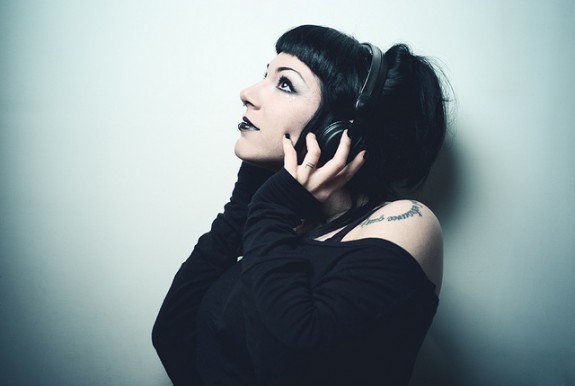What Is it About Music That Triggers All of These Emotions?
Real feel or social construction? Where does the mood of your music come from?

I just have so many FEELINGS. Photo: Daniel Zedda
There’s a showdown going on in the world of music perception—a question that’s been under investigation for millenia. What is it about music—unlike other types of sounds—that causes it to carry so much emotional baggage?
Forget the message carried by the lyrics of a love song or the chorus of a party anthem. How do the rise and fall of the melody or the pace of the tempo convey emotion? Is there something inherent to music, wrapped up in the way it interacts with our brains and the way we think that causes it to make us feel so many feelings? Or is the wail of the sad trombone just a piece of cultural baggage, something we’ve picked up from societal norms?
On their respective YouTube channels, It’s Okay To Be Smart‘s Joe Hanson and PBS Idea Channel’s Mike Rugnetta square off to tackle the issue. Hanson discusses a bit of new research which shows that similar types of sounds evoke similar emotions, even across cultural barriers.
Rugnetta, on the other hand, counters with the argument that though there is potentially some innate association between a certain tune and a general sense of well being, that anything more than this simple connection is just a matter of socialization.
“While people might be able to recognize emotion in music, even music from other cultures, it doesn’t mean that they actually feel that emotion. Or, even if it does affect them, it might not affect them in the same way or to the same degree with every listen. This challenges the idea that we are hardwired to respond to music in some way,” says Rugnetta.
More from Smithsonian.com:
Why Do People Hate Dissonant Music? (And What Does It Say About Those Who Don’t?)
/https://tf-cmsv2-smithsonianmag-media.s3.amazonaws.com/accounts/headshot/smartnews-colin-schultz-240.jpg)
/https://tf-cmsv2-smithsonianmag-media.s3.amazonaws.com/accounts/headshot/smartnews-colin-schultz-240.jpg)